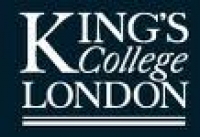Our programme will provide you with a thorough and deep understanding of general electronic engineering design and analysis, whilst also developing key management skills and techniques.
The course is unique in offering specialist modules in robotics and computer science alongside electronic engineering and management. The diverse nature of our programme means you are able to develop a strong foundation in electronic engineering and management, whilst also studying more advanced topics in real time and control systems, telecommunication networks, operations management and information security.
You will be taught by academics who are world-leading experts in their fields and you will benefit from their decades of knowledge and experience. You will explore the essential concepts and principles in engineering management and identify the professional and ethical responsibilities of engineering practice. There is also a strong focus on developing mathematical skills, which you will use to analyse the performance of communication and control systems.
Throughout the programme, you will have access to over 120 fast PCs running Windows and Linux located in several laboratories and for the exclusive use of the department.
The KCL Tech Society organises social and other activities.
Our department has a reputation for good teaching in a friendly environment. We use a mix of teaching styles including traditional lectures, small and large tutorial groups, practical laboratories, individual and group projects, and provide opportunities to speak to staff on a one-to-one basis. We have an active research programme that we bring to bear on our teaching, exposing all students in the final years of their courses to the latest issues in the field.
Structure of course and assessment
All programmes include flexible choices for you to follow your interests, usually in the final year. Single honours students also undertake a supervised project in their final year. Assessment is made using a mix of conventional examinations, coursework, presentations, and laboratory exercises.
This programme is ideal for students who are able to think both analytically and creatively. There is a strong problem-solving component in relation to design, engineering and management. All problem-solving skills are assessed through written examinations, project reports and coursework. Students will also gain essential practical skills in preparing technical reports and presentations, using scientific literature, writing computer programmes, using computational tools and hands-on skills in electronic engineering. The practical and design elements are assessed through laboratory write-ups, design projects, presentations, research project reports and oral examinations. Students will learn to work as both a member of a team and as a team leader in their group projects and group coursework.
Teaching style
Location
You will have access to over 170 fast PCs running Windows and Linux. These are spread over several laboratories for the exclusive use of the department. The King’s Computing Society organises social and other activities, and first years are allocated "Buddy" students from other years to help you settle in.
Special notes
The Department of Informatics consists of expertise in four computer science groups (Agents & Intelligent Systems, Planning, Algorithm & Bioinformatics, and Software Modelling & Applied Logic), and groups in robotics and telecommunications. The selection of available optional taught course modules reflects the range of research interests in the department. All years of our programmes are kept under constant review and we reserve the right to change and improve them at any time.
Throughout the programme, you will have access to over 120 fast PCs running Windows and Linux located in several laboratories and for the exclusive use of the department.
The KCL Tech Society organises social and other activities.
Our department has a reputation for good teaching in a friendly environment. We use a mix of teaching styles including traditional lectures, small and large tutorial groups, practical laboratories, individual and group projects, and provide opportunities to speak to staff on a one-to-one basis. We have an active research programme that we bring to bear on our teaching, exposing all students in the final years of their courses to the latest issues in the field.
The Careers Service and the Department of Informatics run a Careers programme for Informatics students, which includes skills sessions and visits from leading employers. Our graduates go on to successful careers in a range of organisations including banking, finance, management, and the major software houses, where they work mainly on analysis, design, implementation and maintenance of software applications and systems. Alternatively, many of our graduates choose further study.
Career destinations
Recent graduates have found employment as:
Analyst Programmer, Airbus
E-Disclosure Specialist, Stroz Friedberg
Financial Software Developer, goldman sachs
Information Security Consultant, Merrill lynch
Software Developer, Bank of America
Senior Software Engineer, Oracle
IT Consultant, Detica
Management Trainee, Asian Media & Marketing group
Post Doctoral Research Associate, Inovia


